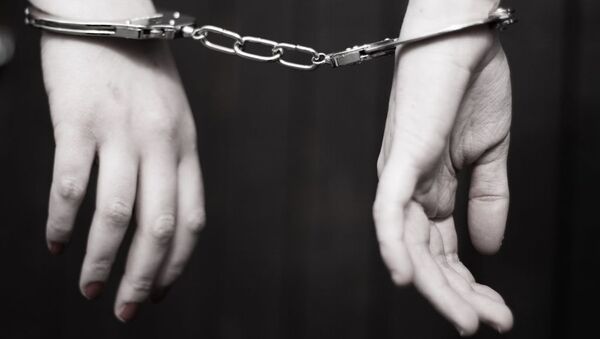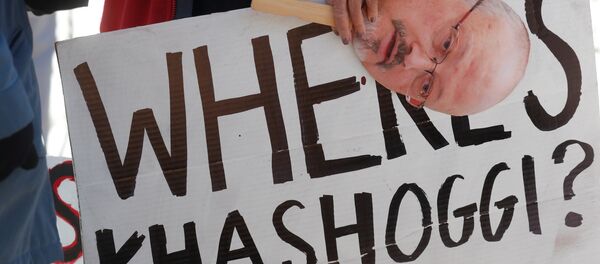The women, along with five Middle Eastern men, were arrested in the Saudi capital after Saudi intelligence officers raided the complex following complaints from neighbors over the noise coming from the party.
Saudi Arabia's legal system is based on Sharia, Islamic law procured from the Qur'an and the Sunnah (the traditions) of the Islamic prophet Muhammad. Under Sharia, women are required to minimize the time spent with men they are not related to. Unlawful mixing with men can result in criminal charges in the country.
An article published Monday by the Philippine Star references a Facebook post published on October 28 by Humoud Al Fajrawi, who has more than 100,000 followers on the social network. In his post, Fajrawi shared videos that appear to have been taken at the Halloween party, showing people dressed up in costumes in a crowded gathering. Later that day, Fajrawi shared a photo of a government document issued by the Embassy of the Philippines in Riyadh titled, "Advisory on Organizing and Attending Events that are Not Sanctioned by the Kingdom of Saudi Arabia." According to Asia News, the advisory statement was issued by the Adnan Alonto, the Philippine ambassador in Riyadh.
"The Philippine Embassy in Riyadh, Kingdom of Saudi Arabia, reminds the Filipino community to refrain from organizing or attending events or gatherings that are unsanctioned or without permission from the Government of the Kingdom of Saudi Arabia," the statement reads.
"In addition, everyone is reminded to avoid mixed crowds, consuming liquor and holding public practice of traditions that are associated with religions other than Islam, such as Halloween, Valentines and Christmas. Finally, the Embassy advises the Filipino community in the Kingdom against producing, spreading or sharing electronically or through social media (Facebook, Twitter, Instagram, Messenger, Whatsapp and other social media platforms) anything that compromises public order, religious values, public morals and privacy," the statement adds.
In 2016, Saudi Arabia's Crown Prince Mohammed bin Salman, who oversees Saudi Arabia's economy, unveiled his plan, dubbed Vision 2030, to modernize and socially reform the conservative kingdom.
In June, women were granted the right to drive in the country for the first time. Earlier this year, the Saudi cabinet also passed a law that requires sexual harassment offenders to spend up to five years behind bars and pay a maximum penalty of $80,000 if they're found guilty.
Despite Saudi Arabia's liberalization efforts, the country still has multiple controversial laws in place, evidenced by the recent arrest of the Filipino women. Under the kingdom's male guardianship system, a woman must have a either a father, brother, husband or son make decisions on her behalf. In addition, there is no penal code in the country that specifically criminalizes rape. There are also no laws outlawing marital or statutory rape.
Saudi Arabia has also made headlines this month following the murder of Jamal Khashoggi, a prominent Saudi journalist and Washington Post columnist who had previously criticized the kingdom's leadership. The journalist was last seen entering the Saudi consulate in Istanbul on October 2. On October 19, Saudi Arabia admitted the journalist had died during a fight inside the consulate. Riyadh claims that 18 people have been arrested over their suspected involvement in the incident, Sputnik previously reported.



